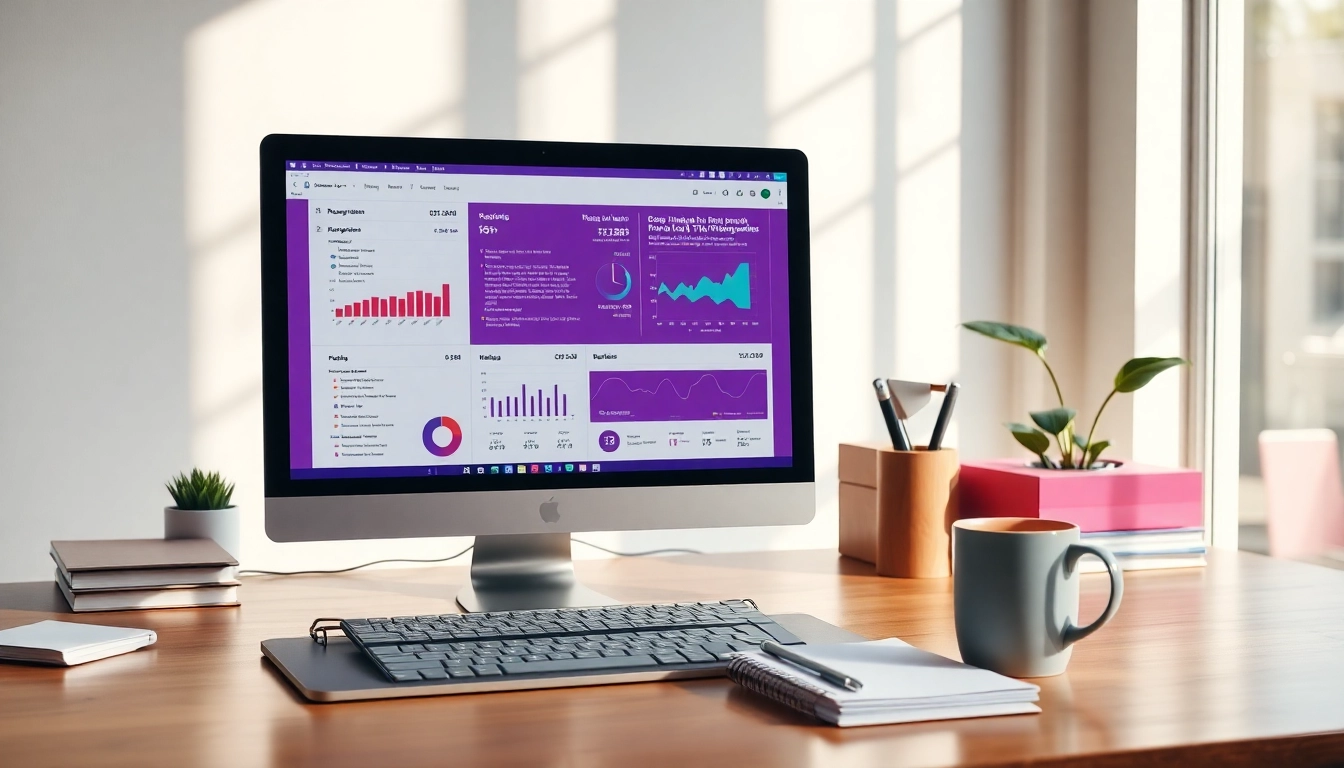Understanding Informatics Concepts
What is Informatics?
Informatics is a multidisciplinary field that combines computer science, information technology, and various domain-specific knowledge to manage and analyze data effectively. It encompasses a range of practices, from collecting and storing data to its processing and presentation. The ultimate goal of informatics is to improve decision-making, enhance productivity, and facilitate communication among entities, be they individuals, organizations, or systems. In a world increasingly driven by data, understanding informatics is crucial for professionals across various sectors.
Key Components of Informatics
At its core, informatics comprises several interrelated components:
- Data Management: The process of gathering, storing, and maintaining data, ensuring its accuracy and accessibility.
- Information Technology: The tools and systems that enable the management and analysis of data.
- Data Analysis: Techniques and methodologies for interpreting data to derive meaningful insights and trends.
- Human-Computer Interaction: Understanding how users interact with technology to improve usability and functionality.
- Domain Knowledge: Expertise in a specific field that guides data interpretation and application.
Importance of www.informaticsview.com in the Field
As a premier resource for professionals in the informatics domain, www.informaticsview.com plays a pivotal role in disseminating knowledge, best practices, and innovations in informatics. The platform offers insights into current trends, research developments, and case studies, serving as a comprehensive guide for informatics practitioners. With its wealth of resources, it empowers users to stay informed and enhance their competencies in this ever-evolving field.
Real-World Applications of Informatics
Case Studies in Various Industries
Informatics has made significant strides across multiple industries. Here are a few illustrative case studies:
- Healthcare: Informatics improves patient care through Electronic Health Records (EHRs), which streamline patient information management and enhance communication among healthcare providers.
- Finance: In banking, informatics facilitates risk assessment and fraud detection through advanced data analytics, helping institutions mitigate financial risks.
- Education: Learning analytics uses informatics to evaluate student performance and tailor educational approaches to individual needs, thereby enhancing learning outcomes.
- Retail: Retailers leverage customer data analysis to optimize inventory management, personalize marketing strategies, and improve customer service.
Impact of www.informaticsview.com on Business Decisions
Businesses increasingly rely on platforms such as www.informaticsview.com for actionable insights that inform decision-making. By accessing an array of articles and research studies, leaders can stay ahead of trends, identify opportunities for innovation, and base their strategies on reliable data. The shared experiences and insights from industry peers create an invaluable context that aids businesses in making informed choices that drive growth and efficiency.
Examples of Innovative Practices
Innovation in informatics manifests in various forms. Examples of best practices include:
- Predictive Analytics: Companies utilize advanced algorithms to predict customer behavior, enabling enhanced marketing strategies and customer relationship management.
- IoT Integration: The Internet of Things (IoT) allows data collection from a range of devices, facilitating real-time insights and streamlined operations.
- Cloud Computing: Organizations are harnessing cloud platforms to enhance data accessibility and collaboration across teams, improving overall business agility.
- Big Data Analytics: Utilizing large datasets to uncover trends, patterns, and insights that were previously unattainable captures the power of data-driven decision-making.
Challenges in the Informatics Landscape
Common Barriers to Implementation
Despite its benefits, implementing informatics solutions can pose several challenges. Common barriers include:
- Data Silos: Different departments often operate with isolated data, hampering the ability to leverage comprehensive insights.
- Lack of Expertise: A shortage of skilled informatics professionals can impede the successful deployment of informatics systems.
- Resistance to Change: Organizational culture can sometimes resist new technologies or methodologies, slowing down the adoption process.
- Inadequate Infrastructure: Some organizations may lack the necessary digital infrastructure to effectively implement informatics solutions.
Data Privacy and Ethics Issues
As organizations harness more data, concerns regarding privacy and ethical usage amplify. Key issues include:
- Data Security: Ensuring that sensitive information is protected against breaches is paramount for maintaining user trust.
- Compliance with Regulations: Organizations must navigate complex legal landscapes like the GDPR, which impose strict guidelines on data usage.
- Bias in Algorithms: Without careful design and oversight, algorithms can perpetuate or exacerbate existing biases in data, leading to unfair outcomes.
- Transparency: Maintaining transparent data practices is critical for ethical informatics, fostering trust with stakeholders.
Strategies for Overcoming Challenges
Addressing the challenges in informatics involves implementing several strategic approaches:
- Fostering Collaboration: Breaking down data silos through interdepartmental collaboration can facilitate comprehensive data usage.
- Investing in Training: Providing training and development opportunities can help bridge the skills gap in the workforce.
- Implementing Change Management: Using structured change management frameworks can help organizations smoothly transition to new systems.
- Strengthening Security Protocols: Investing in robust cybersecurity measures can safeguard against data breaches and build confidence among users.
Best Practices for Informatics Professionals
Essential Skills for Success
For informatics professionals to thrive, cultivating a diverse skill set is crucial. Essential skills include:
- Analytical Thinking: The ability to analyze complex data to derive insights is fundamental for any informatics role.
- Technical Proficiency: Familiarity with data processing tools, databases, and programming languages is vital.
- Communication Skills: Effectively conveying technical information to non-technical stakeholders is important for fostering understanding and collaboration.
- Problem-Solving Aptitude: The ability to identify issues and devise effective solutions is key in a fast-paced informatics environment.
Networking through www.informaticsview.com
Networking is a powerful tool for informatics professionals. Utilizing platforms like www.informaticsview.com can help individuals connect with peers, experts, and potential mentors. Participating in forums, webinars, and discussions can lead to valuable collaborations and exchanges of ideas, propelling professional growth and enhancing industry understanding.
Continuous Learning and Development
In the ever-evolving field of informatics, continuous education is paramount. Professionals should strive to:
- Stay Current: Regularly update knowledge through online courses, certifications, and industry conferences.
- Engage in Research: Participating in research projects or contributing to publications can deepen understanding and enhance credibility.
- Join Professional Associations: Being part of relevant organizations can provide access to resources, networking opportunities, and industry insights.
Future Trends in Informatics
Emerging Technologies
As informatics continues to evolve, several emerging technologies promise to reshape the landscape:
- Artificial Intelligence (AI): AI applications in informatics are enhancing data analysis, automating routine tasks, and predicting trends with remarkable accuracy.
- Machine Learning: This subset of AI feeds data into algorithms to improve predictive accuracy and decision-making capabilities over time.
- Blockchain: The decentralized nature of blockchain technology enhances data security and integrity, addressing many data privacy challenges.
- Edge Computing: Processing data closer to its source minimizes latency and enhances real-time analytics capabilities.
Predictions for the Next Decade
Looking ahead, several predictions can be drawn about the future of informatics:
- Increased Data Personalization: More sophisticated algorithms will enable hyper-personalized experiences in sectors like marketing, healthcare, and education.
- Wider Adoption of AI Ethics Guidelines: As reliance on AI grows, ethical frameworks will be established to govern responsible data use.
- Heightened Focus on Cybersecurity: With rising concerns over data privacy, organizations will prioritize robust security measures to protect sensitive information.
- Growth of Interdisciplinary Teams: Diverse teams combining expertise from various fields will increasingly come together to tackle complex informatics challenges.
Preparing for Future Challenges with www.informaticsview.com
To navigate the future of informatics successfully, individuals and organizations should leverage resources available on platforms like www.informaticsview.com. By staying informed about emerging trends, participating in discussions, and continuously updating skills, professionals can position themselves to address upcoming challenges effectively. The knowledge and community offered by this platform are invaluable as the discipline evolves and faces new demands.



